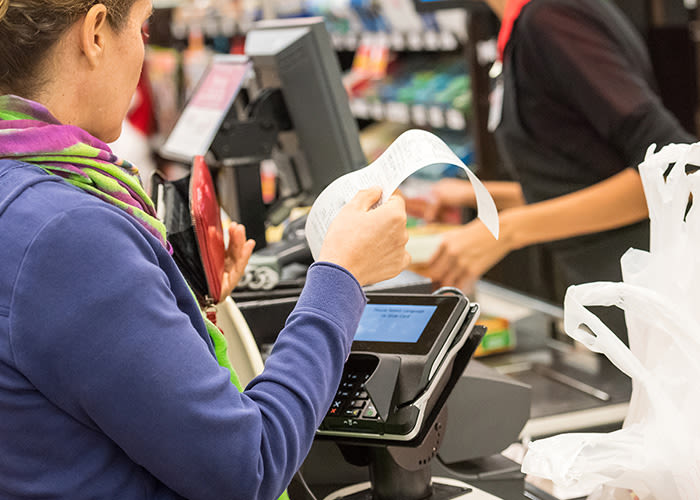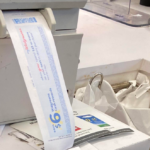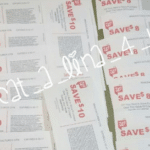
The introduction of a new digital coupon technology can often have shoppers worried about the impending end of an old coupon technology. We’ve seen it lately with the decline of printable coupons, and predictions about the demise of paper coupons.
But a happy side benefit of one new digital coupon initiative could be paper coupons that are more valuable, more secure, more prevalent, and more likely to be accepted by your cashier instead of causing them to suspect you of doing something shady.
Catalina, most famous for its coupons that print at the checkout, has announced that it “will be the first company to offer omnichannel marketing campaigns featuring the next standard in coupon security… in both digital and paper formats.”
The new standard will allow Catalina to provide its coupons to you in digital form, which you can scan right off your phone. But it will also allow Catalina to continue issuing paper coupons, free from the fear that fraudsters will copy or counterfeit them.
To understand how it works requires a brief and relatively painless lesson in coupon bar codes.
If you think back to the old-style UPC bar codes that were phased out on coupons and officially retired several years ago, the number 5 in the first position signified to scanners that the bar code belonged to a coupon whose value should be deducted from, and not added to, your total. The replacement GS1 DataBar, which is longer and can contain much more information, uses 8110 as a coupon identifier.
Now, the coupon industry is working to introduce a new 8112 identifier, which represents a difference of a lot more than just one digit. The new identifier will allow retailers to accept paper and digital coupons with increased security and traceability. An 8112 coupon signifies to the store’s point-of-sale system that the coupon has a single-use serialized bar code that, once accepted, is marked in a centralized system as being used, and it cannot be accepted again. That means a photocopied coupon won’t work if the original has already been used, and it means a bar code created by a counterfeiter won’t work, if that bar code doesn’t show up in the system as belonging to a valid, existing offer.
Much of the anticipation around the new system centers on the fact that it will allow manufacturers to issue a new type of universal mobile coupon that can be scanned from your phone anywhere you shop, as opposed to load-to-card digital coupons that can only be used at a specific retailer. But “the scope of this effort goes well beyond digital offers on an individual shopper’s mobile device,” Catalina explains. Applying the new method to paper coupons, as Catalina now says it will, will make for more secure coupons that are resistant to counterfeiting and misuse.
“Brands have long used Catalina for its precise delivery of personalized offers at a large scale,” Catalina’s Senior Vice President of Product Solutions Ryan Monahan told Coupons in the News. “With this new security they can provide even more value to the shopper, knowing that the offers are protected from misuse.”
The Coupon Bureau, the industry group responsible for developing the new coupon standard, says Catalina’s move is an important step forward. The more 8112 coupons that are available, the sooner retailers are likely to get on board with accepting them. “Catalina paper coupons moving to the new format means a dramatic increase in coupon volume out of the gate, which accelerates retailer adoption, meaning shoppers will have more retailers that can redeem the new Universal Coupons in a shorter amount of time,” The Coupon Bureau CEO Brandi Johnson told Coupons in the News. “It’s a game changer for the overall adoption of the new coupon standard.”
A number of coupon providers have pledged to adopt the new coupon standard in order to provide universal mobile coupons. But Catalina believes the security that the standard brings to paper coupons is just as important. “A misguided offer that goes viral or a high-value offer that gets cloned and redistributed can wreck a brand’s budget,” Monahan said. “Real-time validation gives advertisers more security and trust that their budgets will remain intact, thus enabling them to deliver higher value offers to shoppers.”
So if you’ve ever lamented that those who abuse coupons are ruining it for everyone else, a solution may be on the way. Soon, the coupon industry hopes to ruin it – for the abusers.
Image source: Catalina











Quisiera saber por qué no pasarán mis catalinas en la tienda
Mis catalinas no pasan en la tienda que puedo hacer me pueden ayudar